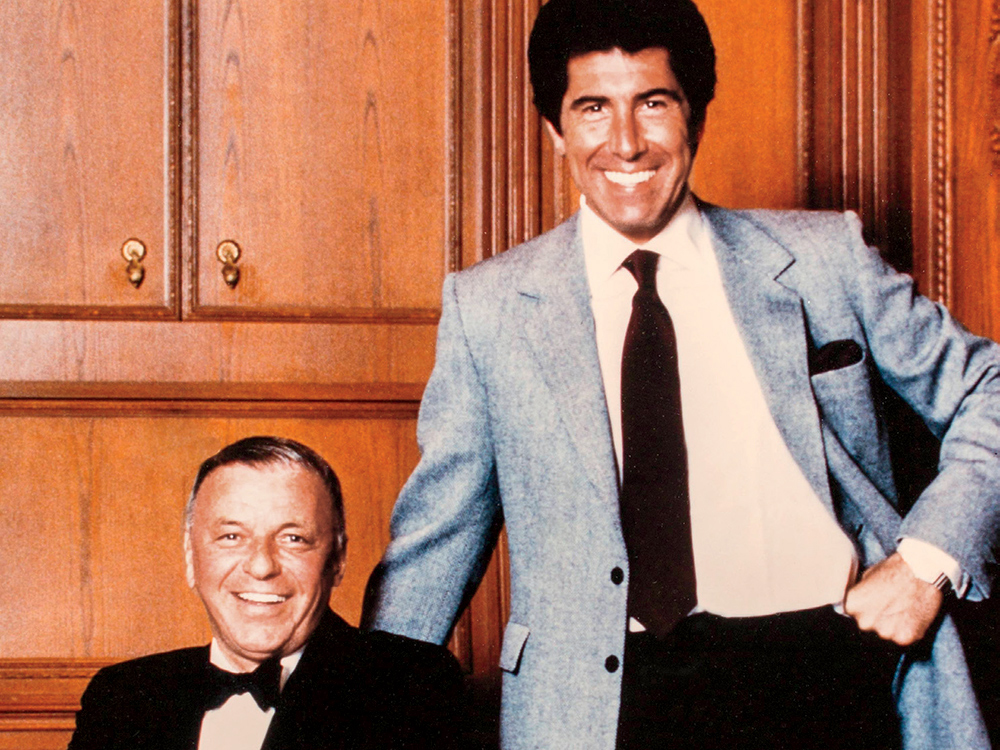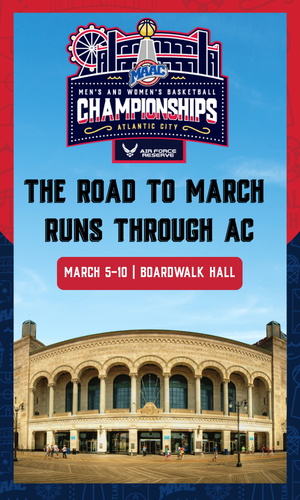By Bruce Klauber
There’s no doubt that Frank Sinatra loved Atlantic City. Until he didn’t.
Although he performed here in every decade, from the 1930s through the 1990s – at the Steel Pier, Convention Hall, the 500 Club, Resorts, the Boardwalk’s Golden Nugget, and the Sands – in 1984 he threatened to leave Atlantic City and never return. The incident, which made headlines at the time, took place at the Golden Nugget. That he was working at the Nugget is a story in itself.
Resorts International, which opened in 1978 as the first legal hotel/casino in Atlantic City, was the only game in town until Caesars opened a year later. Thinking well in advance, in 1976, Resorts hired promoter/entrepreneur Tibor Rudas to build Resorts’ 1,500-seat Superstar Theatre.
So, when Resorts opened, it was ideally positioned to sign the biggest stars of the time to exclusive contracts. Those stars included Diana Ross, Jackie Gleason, Natalie Cole, Steve Lawrence and Eydie Gorme, Steve Martin, Phyllis Diller, Shecky Greene, Johnny Mathis, Dolly Parton, Bill Cosby, and Frank Sinatra. By all accounts, Sinatra was happy at Resorts. He was treated royally and all his performances were sellouts.
But Resorts’ monopoly on talent and legal gaming didn’t last long. Caesars opened in 1979, followed by Bally’s, the Brighton (later the Sands), Harrah’s, and on Dec. 12, 1980, the Boardwalk’s Golden Nugget.

The Nugget’s Steven Wynn is often credited with facilitating Las Vegas’ monumental and much-needed turnaround from a past-its-prime gambling mecca, to a family-themed gaming resort (think Disneyland with slot machines). One of Wynn’s first orders of business was to invest $52 million in his Golden Nugget property in downtown Las Vegas.
Until Wynn began pouring money into Vegas’ Nugget, the downtown area virtually defined the words “honky-tonk.” Wynn not only turned that venue into a world-class resort and destination, but it marked the beginning of the revitalization of Las Vegas.
Wynn kept abreast of all the news coming out of Atlantic City, and in the early days of Atlantic City gambling, most of the news was good. Very good.
On Dec. 12, 1980, Wynn opened Atlantic City’s Golden Nugget Hotel and Casino on the Boardwalk. Atlantic City hadn’t seen anything like it. Everything about it said “luxury,” from the rooms to the restaurant to the amenities, and ultimately, to the entertainment. Not only did Wynn begin installing name acts in the Nugget’s lounge, but he hired Frankie Randall, a well-connected and beloved performer who also had plenty of booking experience, to handle the talent. Randall systematically began luring Resorts’ acts to the Nugget. It took around three years to add Frank Sinatra to the Golden Nugget entertainment roster.
Frank Sinatra loved everything about his three-year contract. He would not only perform at the Nugget in Atlantic City and Las Vegas, but he would be an informal spokesperson for the company via involvement in various promotional activities and filming television commercials on the Nugget’s behalf. He was also very impressed by the theater, which seated only about 500.
In his view, the theater was the ideal spot, acoustically and otherwise, to present music. Of course, the real gist of the deal was to lure the ultra-high rollers to the hotel/casino. With Frank Sinatra on hand as “spokesperson,” you can bet that the high-rollers lined up to gamble at the Golden Nugget.
It was a beautiful thing. Frank Sinatra was happy with the deal – the hotel, the perks, and the first-class treatment he received from Steven Wynn. But all that changed, quickly and drastically, at about 1 in the morning on Nov. 30, 1983.
Sometime after his show, Frank Sinatra, with Dean Martin in tow, decided to play blackjack on the Nugget’s casino floor. Such activity was nothing new in Atlantic City or in Las Vegas, where entertainers let their hair down by taking a turn or two at the tables. It was fun, it fostered good will, created excitement, and everyone benefited.
The problem began when Sinatra asked that the dealer dispense cards to them from a single deck. What complicated that seemingly simple request was that New Jersey gaming rules required that blackjack be dealt from an eight-deck shoe. Atlantic City casinos could only deal single-deck blackjack after submitting an outline of procedures to the Casino Control Commission. No such permission was required in Nevada.
Frank Sinatra and Dean Martin, the latter an experienced dealer himself, were unaware of the rules and were reportedly not happy about them. Several casino employees who were on the floor at the time alleged that the two were abusive, that they intimidated the Korean-born dealer, and threatened not to perform in the casino unless dealers dealt by hand from a single deck.
Supposedly the dealer gave in when Sinatra told her to “go back to China.” That part just doesn’t ring true. It is just not something Frank Sinatra would say.
Sinatra’s version of the story? He sat down at an empty table where several decks were ready to be shuffled. As the dealer started to shuffle them together, Sinatra said, “just deal one deck from your hands,” not realizing it was illegal for the dealer to do that. The dealer then turned to a floor man or pit boss, who gave the dealer the go-ahead.
That should have been the end of it. It wasn’t.
Casino employees involved in the incident were suspended, New Jersey gaming officials investigated allegations that Sinatra intimidated a blackjack dealer into altering the rules, and the Nugget was fined $250,000 for dealer infractions.
Okay, that should have been the end of it. But it wasn’t. This was, after all, Frank Sinatra, and because it was, some people just wouldn’t leave it alone.
Joel Jacobson, who was then serving as a New Jersey Casino Control Commissioner, decided to take on Frank Sinatra and publicly called him “an obnoxious bully.”
That didn’t sit well with Sinatra. Saying that he would not be used “as a punching bag,” he canceled all his appearances in the state of New Jersey.
Jacobson’s response was that he was disappointed that Mr. Sinatra “had abandoned the tradition that the show must go on,” adding that the entertainer was entitled to “his temper tantrums.”
Then-Gov. Thomas Kean tried to smooth things over, saying that he was a ”personal fan” of Sinatra’s, and called the singer’s decision “a loss for New Jersey.”
In the end, Frank Sinatra stayed away for a little less than a year. He returned to the Golden Nugget in 1985 and played seven shows in October of that year.
He would stay at the Nugget through the change in ownership from Steve Wynn to the Bally organization until 1990, when he signed an exclusive, nine-show, two-year contract with the Sands. Frank Sinatra’s final show in Atlantic City took place at the Sands on Nov. 19, 1994.
If Joel Jacobson wanted to make a big name for himself, it didn’t work. In 1986, two years after “the incident,” he resigned from the Casino Control Commission to accept a federal court-appointed position as trustee of Teamsters Local 560, representing North Jersey truckers and industrial employees. He died on Dec. 26, 1989 at the age of 71.
Bruce Klauber is the author of four books, an award-winning music journalist, concert and record producer and publicist, producer of the Warner Brothers and Hudson Music “Jazz Legends” film series, and performs both as a drummer and vocalist.











